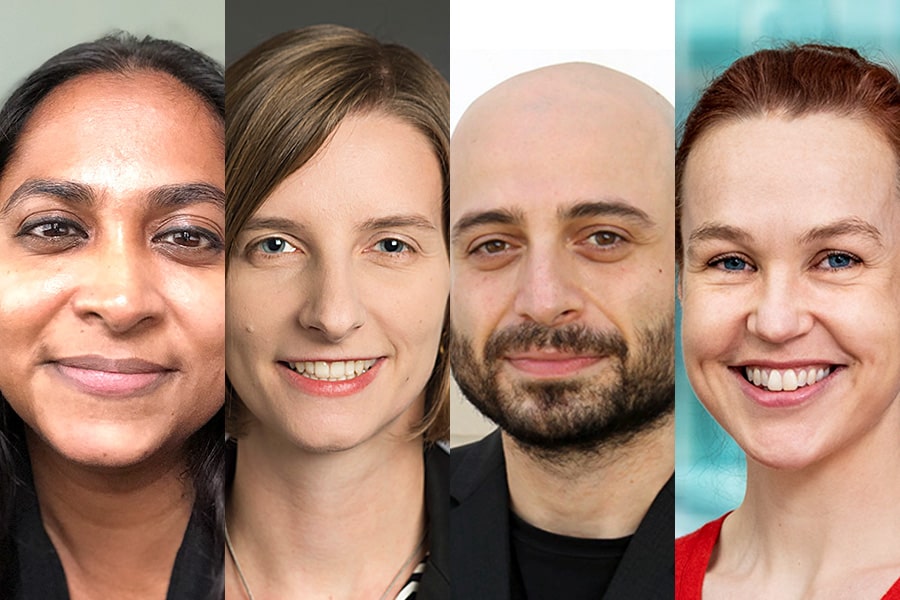
CMU Researchers Named to World Economic Forum Global Future Councils
Four researchers from Carnegie Mellon University have been named to the World Economic Forum's network of Global Future Councils for the 2020-21 term, which runs from October 2020 to September 2021. During the term, members will contribute insight and ideas for the World Economic Forum's Great Reset initiative to help world leaders and the global public to better understand, address and prepare for the post-COVID world.
The 2020-21 term comprises 40 councils around themes such as the "New Agenda for Economic Growth and Recovery"; "Systemic Inequalities and Social Cohesion"; "Net-Zero Transition"; and "Artificial Intelligence for Humanity." Each council has 20-30 experts from academia, government, international organizations, business and civil society.
CMU researchers chosen for the 2020-21 term include Beatrice Dias, co-director of outreach in The CREATE Lab in the School of Computer Science who will serve on the Artificial Intelligence for Humanity council; Sina Fazelpour, Social Sciences and Humanities Research Council postdoctoral fellow in the Dietrich College of Humanities & Social Sciences' Department of Philosophy who will serve on the Data Policy council; Kate Whitefoot, assistant professor of mechanical engineering and engineering & public policy in the College of Engineering who will serve on the Clean Air council; and Erina Ytsma, assistant professor of accounting in the Tepper School of Business who will serve on the New Agenda for Work, Wages and Job Creation council.
The network of Global Future Councils brings together more than 1,000 experts from 31 industries and 81 countries and serves as a brain trust for leaders from all walks of life. The World Economic Forum is providing the Councils a platform for advancing multi-stakeholder collaboration and systems thinking which are needed more than ever to respond to rapid social and technological change.